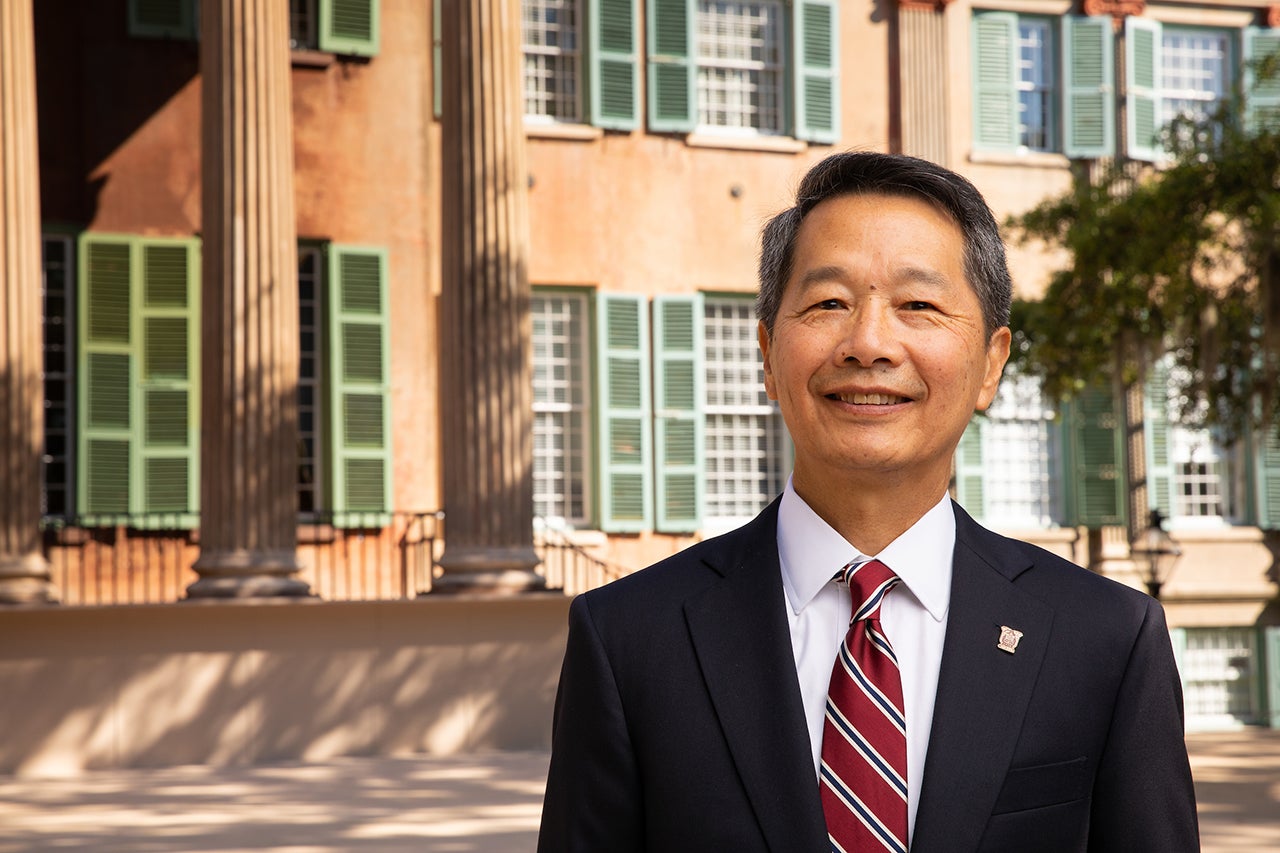The months and years of the pandemic have certainly had an impact on our lives. For many, it has been a tragedy – with families losing jobs, careers and loved ones. For others – the lucky ones – the pandemic has been an inconvenience, although a nuisance like no other in their lifetimes. And, of course, there are the vast majority who experience varying degrees of difficulty at different times. Remarkably, these divergent realities exist simultaneously in our communities and across our country, and because of that incongruity of shared experience, it is hard to find common ground.
While we all may have different experiences during the pandemic, we do share a mutual bond through the College of Charleston. So, let me share with you how COVID-19 has affected our beloved institution.
Unfortunately, higher education is one of the many industries facing hardship. According to the National Student Clearinghouse Research Center, undergraduate enrollments at public four-year colleges this fall declined by 2.3 percent, the second year in a row of declining numbers.
However, fortunately, the College of Charleston is bucking that trend.
When the pandemic began in March 2020 and the College was forced to convert to online instruction, I came across an article in The Economist’s Schumpeter blog that struck a chord with me. I shared that piece with our deans and senior leaders on campus. The gist of the columnist’s point was that “some companies will … revert to autopilot once the threat recedes. But for others the interruption will have a lasting effect, accelerating trends in business organization that were already under way.”
In spring 2020, we were beginning to implement aspects of our 10-year strategic plan, Tradition & Transformation; so, my hope at the time was that we would emerge from the pandemic in a stronger position than before.
Looking back over the past two years, I am reminded of those training montage shots in movies like Rocky, The Karate Kid or Mulan, where the main characters are seen in various vignettes pushing through hardship while a high-energy song reminds the audience that perseverance leads to victory. While the College may not yet be at the top of the 72 steps leading to the Philadelphia Museum of Art (à la Rocky), we are certainly pushing upward and onward.
This past year, despite the pandemic and its surges, the College took important strides in climbing those Rocky steps to becoming a national university redefining the liberal arts. While colleges across the country saw enrollment dips, the College did not. In fact, we grew our total student population by 4% compared to fall 2019 (pre-COVID). This fall, we welcomed our largest freshman class in school history. We achieved that number (2,473 first-year students) by setting new records in applications, meaning more prospective students and their families are learning about the value of a College of Charleston education and experience. We jumped from 11,783 applications in 2019 to 20,484 applications in 2021. Simply put, word is spreading, and the word is good.
Along those same lines, we set a new record in philanthropic support this past year, raising more than $20.2 million in new commitments. Those dollars represent strong affirmation from our many investors (alumni, families, donors and friends) that the College is moving in the right direction. And that impressive engagement – while certainly better than in years past – represents only a small fraction of our potential for alumni participation in giving to the College. In basketball terms, we would be described as a player with tremendous upside with a very high ceiling.
These are exciting times for the College of Charleston, and that is a credit to our faculty, staff and community partners because of their creativity, their innovation and their resilience. We are where we are because of their talent and their conviction that the College of Charleston’s best days are just ahead. Why? Because you don’t endure two and a half centuries’ worth of hurricanes, diseases, financial disasters, earthquakes and wars without the deep-rooted belief that you can always come back better and stronger. And we are. – President Andrew T. Hsu




